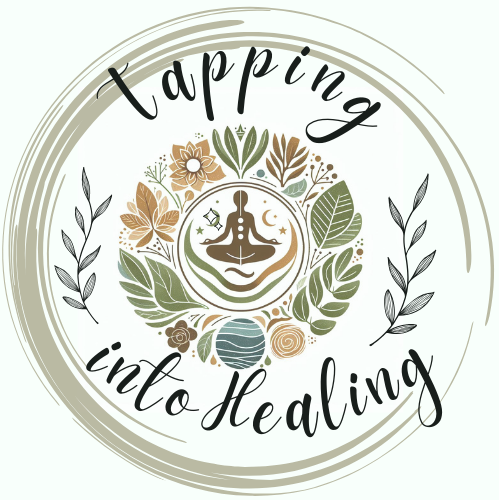You may have wondered about how to have healthier relationships with others. You may have even wondered about having more self-love or how to be happier with who you are. But, have you considered that the relationship you have with yourself has everything to do with the relationship you have with others.
No other relationship is as vital to your health and well-being as the one you have with yourself. If you haven’t really considered it before I am asking you to think about it now. How does the way you see and treat yourself impact the way you are in other relationships, whether they are family, colleagues, friends, or a significant other.
Lets take a look at how improving your relationship with yourself can make you a happier and more fulfilled individual.
5 Steps To Improving Your Relationship With Yourself
So, where do you start in improving your relationship with yourself?
Listed below are 5 steps to help you move towards a better relationship with yourself, and hopefully to a place of self-love. As you go through the following steps it will be helpful to start identifying your beliefs, feelings, and goals, and then taking them seriously. It’s all a part of having a good relationship with yourself, getting to know yourself and what you stand for will help you in learning to really appreciate yourself.
It’s important to remember that no one in the world knows what it’s like to be you. This is why you have to be your own best friend.
To boost your self-worth, start with these five techniques.
1. Be Kind To Yourself
As a therapist I see how people talk to themselves. We say things to our self we would never say, at least not out loud, to another person. We are often our own worst critics, our own worst enemies, focusing on our imperfections and rarely seeing what we are doing well.
It can be our work habits, our physical appearance, the way we dress, our intelligence, it can be the shape of our little toe. When our focus is on what is wrong we will never see what is right. So how about shifting the focus?
The next time you look in the mirror, instead of identifying the flaws, find one thing you appreciate about yourself. Say it out loud. Have a little gratitude for that one thing you can appreciate in this moment. It might be the color of your eyes, or the shape of your ears. It might be difficult at first to look past the perceived flaws, but don’t worry, with practice and patience you can get there.
Do this daily and it will get easier, learn to appreciate what you see in the mirror. You are perfect in your imperfections. Being human means you are imperfect, striving for perfection or beating yourself up because you have not achieved the impossible bar you have set will keep you in a place of self loathing, not self-love.
Learn to accept the things you don’t love. They’re still part of what makes you the special and unique person you are. In time the imperfections will dwindle and you’ll be able to make a list of all those things that make you beautiful and unique. In the meantime have a little self compassion.
2. Take Time To Identify What You Value
It might be helpful to look at it through the lens of what you like and don’t like. Starting to identify likes and dislikes is a good way to really start to get to know yourself and what is important to you. That is the clue to your values.
If you can’t stand it when people talk badly about your friends or family, one of your values might be loyalty. If you feel driven to achieve and accomplish things and feel excited at the end of a productive day, you might value success, or achievement. Knowing what matters to you and embracing it, standing up for it, setting boundaries if necessary is what self acceptance is about. Self acceptance is at the core of having a good relationship with yourself.
It can be hard at times to allow yourself to be seen for who you truly are. We want other people’s approval, we want to fit in. Society conditions us to follow the rules as a way to fit in and be accepted. But it can be very freeing to be yourself and not feel the need to change the way you live or the way you do certain things to please other people.
Realizing that we’re all different means accepting your individuality. Understanding your values, what brings meaning to your life allows you to live in a way that can truly lead to a great relationship with yourself. As you become more self-accepting, you will find that the people you surround yourself with will accept you for who you are as well.
This can be a process if you have never thought about what you value before, so have some patience as you try to figure out what really matters to you. Once you identify the things that bring meaning into your life and live in accordance with your values, you will feel happier, less stressed, and in alignment with who you are.
3. Make Self Care A Priority
Taking time for yourself is an act of self-love not selfishness. First of all when you take time for yourself you have more to give to others. Secondly, if you are working on developing a better relationship with yourself, you might want to start to treat yourself the same selfless way you treat a friend.
Begin by setting up some healthy habits. Start from when you first wake up in the morning and continuing all the way to when you go to sleep.
Some of these habits include:
- Start the day with some positive affirmations
- Exercise regularly
- Actively plan healthy, well-balanced meals
- Find things to laugh and smile about
- Journal
- Practice mindfulness and meditation
Don’t forget the basics, clean your space, take a shower, get enough sleep, go to the doctor. You are responsible for you, learn to be your own best friend by habitually making you a priority in your life.
Learn to say No! If you tend to be a people pleaser and agree to anything and everything, now might be a good time to think about how that is serving you. It’s okay to stop and say “Let me think about it and I’ll get back to you.” It’s okay to choose you if adding one more thing to your plate will create a sense of overwhelm.
4. Learn To Be Your Own Cheerleader
Try to get away from thinking in terms of success or failure. Many of us have all or nothing thinking and give up if we miss the mark on a project for example. Lets’s say you set a goal to meditate for 20 minutes every day. Then life happens and you get thrown off course and instead of re-evaluating or giving yourself credit for what you have accomplished, you quit.
By being your own cheerleader you look at it differently, you recognize that you didn’t fail that instead you may have bitten off more than you should have and you need to reassess. You can still reach your intended goal but you may need to build up to it. With your current schedule maybe you only meditate 4 days a week or start with 10 to 15 minutes. If you can’t fit in the whole 10 or 15 maybe you could go for a mindfulness walk later, you aren’t so rigid with yourself.
Use your cheerleader voice and encourage and support yourself instead of giving up if it didn’t work out the way you wanted initially.
It connects with the “Be Kind To Yourself” idea, accept that you aren’t perfect. How would you encourage a friend that was ready to give up on themselves? Be that friend to yourself and cheer yourself towards success.
5. Start To Trust Yourself
Learning to trust yourself is learning to listen to your gut, your intuition, your instincts. Too often we get caught up in multitasking, the shoulds, the musts, and the need toos, and we don’t stop and notice how we feel about what we’re doing. Or, we might rely too much on what others think and become shut off from our inner knowing. When something feels off, pay attention to what your gut is telling you, even if it goes against what others are telling you.
Find time daily to check in and start to get in touch with not only feelings but thoughts and physical sensations. Let yourself feel, and get comfortable identifying your emotions and beliefs. When you listen to what your body and spirit are telling you, you’ll feel inner peace and a sense of connection with yourself.
After a while, you’ll get better at understanding your body’s cues and signals. With time you will feel confident in trusting yourself.
Conclusion
Accepting yourself increases your self-esteem and strengthens your sense of self. It’s one of the best ways to develop a healthy relationship with yourself and ultimately with others. Each of the five techniques aims at improving your connection to yourself, getting to know yourself better, treating yourself well, and learning to embrace all of you.
Practice them daily, or maybe start with the first one and practice it for 30 days and then add in the next one. Doing the practices will help you get to know yourself better and appreciate how special you are.

